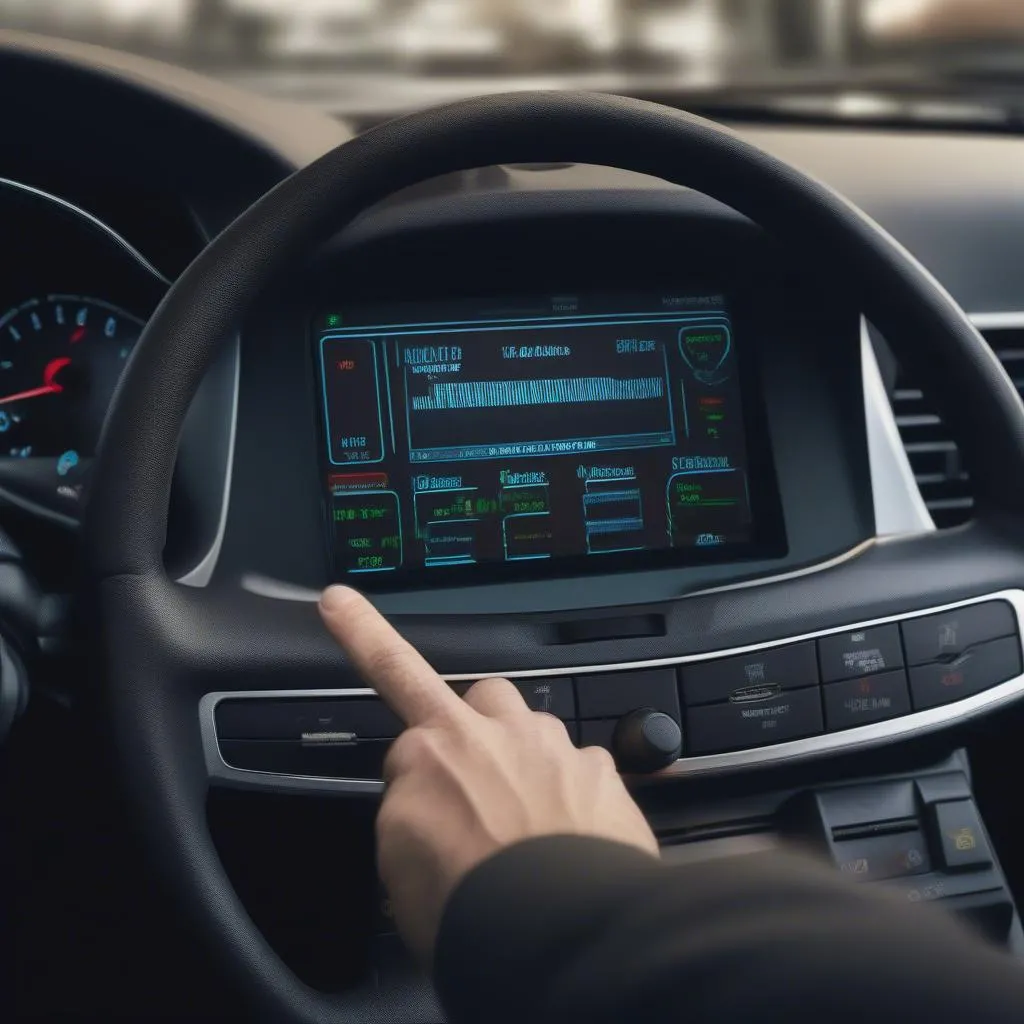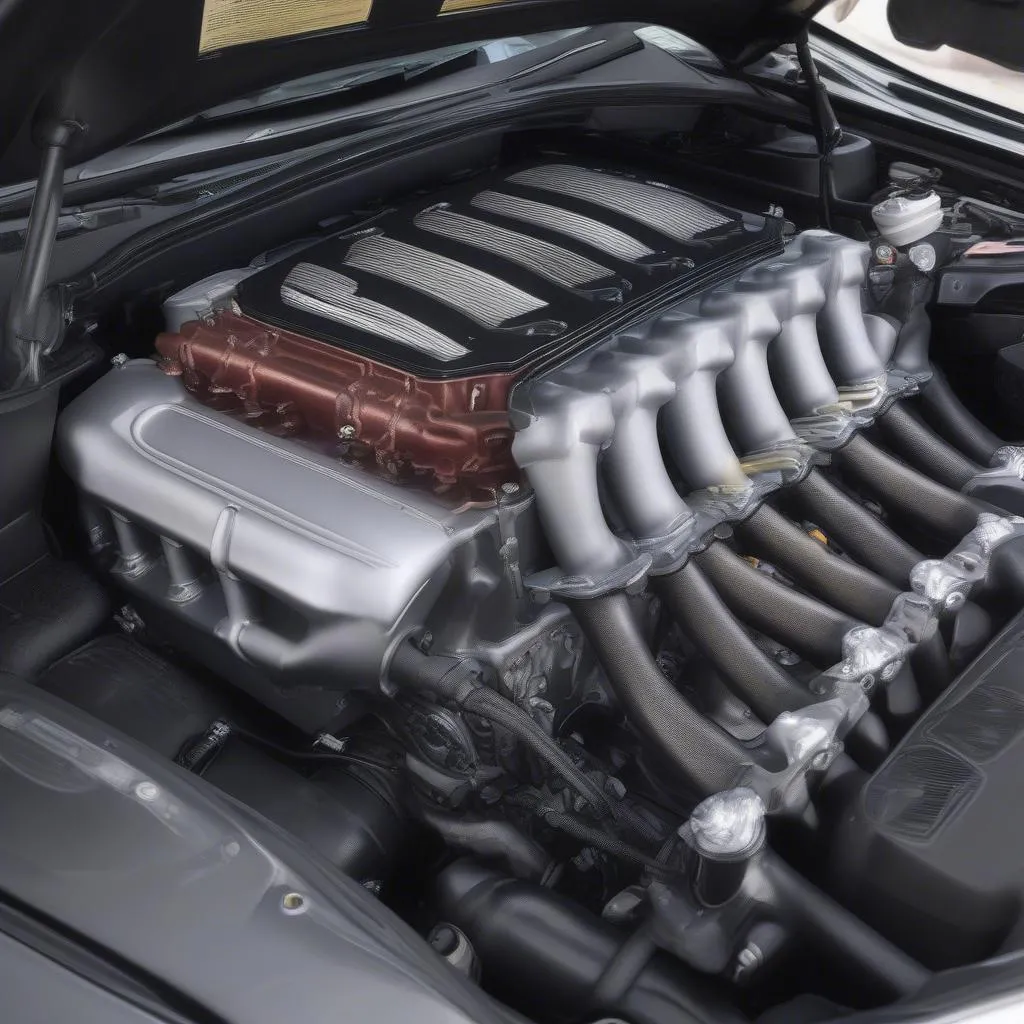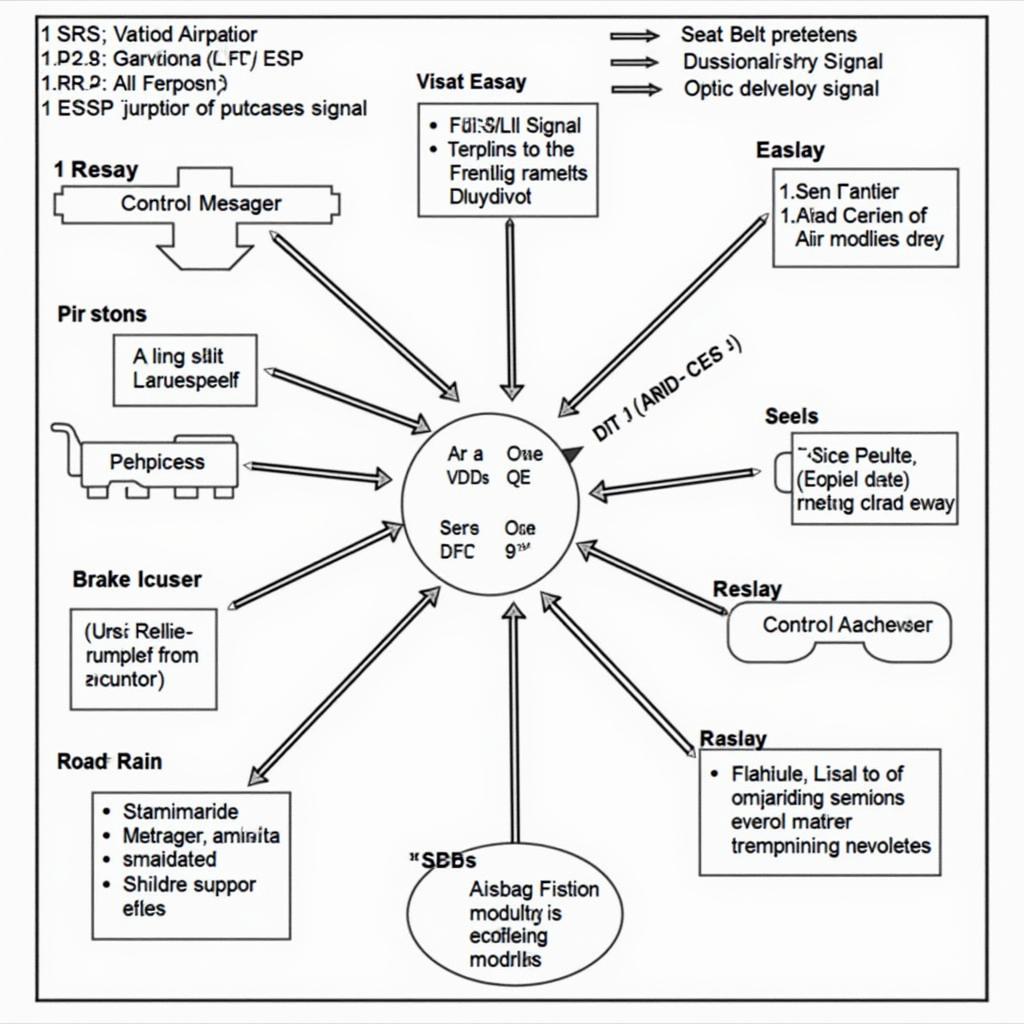If you’re driving a 2014 GLK 350 Mercedes and see those dreaded ABS, ESP, or BAS warning lights illuminating your dashboard, don’t panic! This guide will walk you through the common causes, symptoms, and solutions to get your Mercedes safely back on the road.
Understanding the Warning Lights: ABS, ESP, and BAS
Before diving into the fixes, it’s crucial to understand what these warning lights signify:
- ABS (Anti-lock Braking System): Prevents wheel lock-up during braking, ensuring better control.
- ESP (Electronic Stability Program): Maintains vehicle stability by controlling braking and engine power in challenging driving conditions.
- BAS (Brake Assist System): Applies maximum braking force during emergency stops.
When these lights appear simultaneously, it often points to a common underlying issue affecting multiple safety systems.
Common Causes of the Malfunction
Several factors can trigger the ABS, ESP, and BAS malfunction in your 2014 GLK 350:
- Faulty Wheel Speed Sensor: One of the most common culprits. These sensors transmit wheel speed data to the ABS control unit, and a malfunction can disrupt the entire system.
- Worn Brake Pads: Worn brake pads can affect the sensor readings, causing the warning lights to appear.
- Low Battery Voltage: Surprisingly, a weak battery can disrupt the sensitive electronics controlling these systems.
- Steering Angle Sensor Issue: This sensor relays information about your steering wheel position. A fault can confuse the stability control system.
- ABS Control Module Problems: In rarer cases, a faulty ABS control module may require professional diagnosis and potential replacement.
Diagnosing the Problem
While some issues, like worn brake pads, are visually identifiable, others require a deeper dive. Here’s a simple approach:
- Check Your Battery: Ensure your battery is fully charged and functioning correctly. A simple voltage test can provide insights.
- Visual Inspection: Inspect your brake pads for excessive wear.
- Diagnostic Scanner: Utilizing an OBD-II scanner specifically designed for Mercedes-Benz vehicles, like those offered by Cardiagtech, can pinpoint the error codes causing the malfunction. These codes offer valuable clues about the root of the problem.
 OBD2 Scanner Connected
OBD2 Scanner Connected
Fixing the Malfunction
Depending on the diagnosed issue, here are potential solutions:
1. Wheel Speed Sensor Replacement
- Tools: Jack, lug wrench, socket set, new wheel speed sensor.
- Steps:
- Safely raise the vehicle and remove the affected wheel.
- Locate the wheel speed sensor (usually behind the brake rotor).
- Disconnect the sensor and install the new one, ensuring a proper fit.
- Reattach the wheel and lower the vehicle.
- Clear the error codes using your OBD-II scanner.
2. Brake Pad Replacement
- Tools: Jack, lug wrench, socket set, C-clamp, new brake pads.
- Steps:
- Follow similar steps to the wheel speed sensor replacement to access the brakes.
- Using a C-clamp, compress the brake caliper piston.
- Remove the old brake pads and install the new ones.
- Reassemble the brake system and lower the vehicle.
3. Battery Replacement or Charging
- If your battery is weak, charging it fully might be sufficient.
- If replacement is necessary, ensure you choose a battery compatible with your GLK 350.
4. Steering Angle Sensor Calibration
- Tools: Diagnostic scanner capable of performing steering angle sensor calibration.
- Steps:
- This procedure typically requires a professional-grade scanner.
- Follow the on-screen instructions provided by the scanner.
5. ABS Control Module Repair or Replacement
- This is the most complex and expensive repair and is best handled by a qualified mechanic.
 Mechanic Inspecting Car
Mechanic Inspecting Car
Frequently Asked Questions
Q: Can I drive my car with the ABS, ESP, and BAS lights on?
A: It’s highly discouraged. While your car might seem drivable, these safety systems are crucial, especially in emergency situations.
Q: How much does it cost to fix the ABS, ESP, and BAS malfunction?
A: Costs vary significantly depending on the root cause. Simple fixes like sensor replacements might cost a few hundred dollars, while ABS module issues can run into thousands.
Q: Can I use any OBD-II scanner for diagnosis?
A: For Mercedes-Benz vehicles, it’s recommended to use specialized scanners, like those provided by CARDIAGTECH, to access and interpret manufacturer-specific codes accurately.
Conclusion
Addressing the ABS, ESP, and BAS malfunction in your 2014 GLK 350 Mercedes is crucial for your safety and the vehicle’s well-being. While some fixes are straightforward, others require professional intervention.
“Remember,” says Robert Kline, a veteran automotive engineer with over 20 years of experience, “early diagnosis and prompt action can save you from costly repairs down the line. Utilize a reliable diagnostic tool and, if unsure, consult a qualified Mercedes-Benz specialist.”


